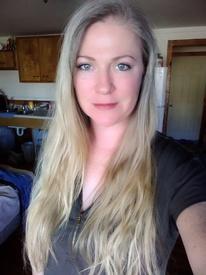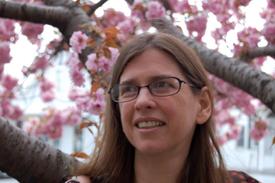Meal Sizes

naomijuliette96
Posts: 153 Member
Hi guys,
I have a question that been on my mind for a while now!
there are a lot of studies that have been done that show that it is much healthier to eat a large breakfast, and taper off your calories throughout the day. I often eat like this on my recovery days, and I find it works very well for me! Less snacking throughout the day, as I am not nearly as hungry. Heres the problem. My team trains in the evenings, and I normally don't get home until 7:30. This means that not only am I eating while I'm training, (bars, bananas, trail mix etc) when I get home, I am soooo hungry and ready for dinner! I have already used up a lot of glycogen and energy during my ride, most of which are between 2 and 4 hours, and eating a small dinner is just not realistic for me.. I'm starving, and I want to be able to recover properly.
Should I just suck it up and go to bed a bit hungry?
I find right now my problem is I'm starving in the mornings and evenings so my calories are crescendoing throughout the day.. Is this healthy?
I have a question that been on my mind for a while now!
there are a lot of studies that have been done that show that it is much healthier to eat a large breakfast, and taper off your calories throughout the day. I often eat like this on my recovery days, and I find it works very well for me! Less snacking throughout the day, as I am not nearly as hungry. Heres the problem. My team trains in the evenings, and I normally don't get home until 7:30. This means that not only am I eating while I'm training, (bars, bananas, trail mix etc) when I get home, I am soooo hungry and ready for dinner! I have already used up a lot of glycogen and energy during my ride, most of which are between 2 and 4 hours, and eating a small dinner is just not realistic for me.. I'm starving, and I want to be able to recover properly.
Should I just suck it up and go to bed a bit hungry?
I find right now my problem is I'm starving in the mornings and evenings so my calories are crescendoing throughout the day.. Is this healthy?
0
Replies
-
there are a lot of studies that have been done that show that it is much healthier to eat a large breakfast, and taper off your calories throughout the day.
I would bet that you can't find a study that shows this. Most studies show that people that eat breakfast tend to weigh less. Even those studies do not specify a large breakfast, or tapering calories throughout the day.
It's not that eating breakfast makes you healthier, it's that many people who skip breakfast eat more later because they are so hungry. But, it's important to remember that "many people" =/= "all people"
Eat your calories whenever it best fits your schedule and keeps you on track.0 -
I don't think it's how much you eat as much as what you eat. For instance, if you're doing mainly cardio, pack more of your whole grains and complex carbs into your breakfast with your proteins and fats for later in the day. When it's all said and done, your body has no idea if it's 9am or 9pm, only that you have been fasting for 8 hours during sleep or 6 hours between lunch and dinner. Focus more on what you're eating at what time of day in relation to your workouts and less on large quantities at this time o'clock and small tiny portions at that time o'clock. In the end it all balances out and you just need to make sure you're not putting yourself on a blood sugar roller coaster throughout the day trying to follow some random study.
10 years ago carbs were the enemy. 20 years ago fat was the enemy. 5 years ago there were superfoods. There will always be research studies proving and later being disproven to say this is how it should be done, oh wait, that was wrong, this is how, no, no, wait, THIS is how, etc.0 -
I've been overweight most of my life, and I have been told that breakfast is important because it "breaks" your body from the natural "fast" that your body takes on when it is resting--thus the name "breakfast". You're supposed to eat six small meals per day, and you need to eat enough calories to fuel your body. If you're looking to lose weight, then you have to burn more calories than you put in your body. If you're going to maintain your weight, then you need to eat just as many calories that you are burning. If you want to gain weight, then you need to put more calories in your body than you are working off. Since you're a cyclist (I presume by the photo), then you'll more than likely need to eat a balance of 600 calorie main meals and 400 calorie snacks--and place most of your calories toward the end of the day when you train. I'm no doctor, but it sounds to me that you'll need more protein and carbs toward the end of the day to sustain your body through exercise, and avoid hunger later in the evenings. Like, you could eat a 4-6 ounce piece of chicken, fish, turkey or something with protein, and balance it with good carbs like brown rice, wheat noodles, or sweet potatoes. And toss in a veggie or two. The protein will keep you from being hungry and the carbs will give you the energy you need to exercise. The veggies will keep your digestive system regulated. Hope this helps!0
-
What it comes down to is what works for you... If you try an approach and it's not working or you can't stick to it, try something different.
Personally, I believe that going hungry really just sets you up to fail. Making you more likely to end up over compensating.
If you are hungry eat...
I know people who swear by several small meals a day, personally, that doesn't work for me. When I graze I always seem to go over my calories and I feel like I never get ahead of my hunger. If I have a couple of substantial meals, I feel full and can focus on doing other things. I don't think my body will go in starvation mode in a matter of hours.... I think even if I at my daily calories all in one sitting as long as I did it consistently, my body would figure out how to use it best.
For a while when I was working from home I tried making my morning meal protein based (because proteins take the longest to burn off) my midday meal skewed toward carbs, (complex carbs are burn more quickly than proteins) and my evening meal was focused on fruits and veggies. (they run through your system the quickest) Not to say that I ate only those things at those times, I simply skewed my meals.
It worked, but it was a pain in the butt to be out of sync with the rest of society... If you have the time to make pork chops for breakfast all the more power to you.
I ignore rules like don't eat after 8pm... because I don't have a standard schedule.
I think WHEN you eat is less important than WHAT you eat and HOW MUCH0 -
It doesn't matter when you eat, just how much you eat. Newer studies have shown that it really does not matter, having a breakfast does not kick start your metabolism or any such nonsense.
Fats and protein help you feel more full.0
This discussion has been closed.
Categories
- All Categories
- 1.4M Health, Wellness and Goals
- 398.2K Introduce Yourself
- 44.7K Getting Started
- 261K Health and Weight Loss
- 176.4K Food and Nutrition
- 47.7K Recipes
- 233K Fitness and Exercise
- 462 Sleep, Mindfulness and Overall Wellness
- 6.5K Goal: Maintaining Weight
- 8.7K Goal: Gaining Weight and Body Building
- 153.5K Motivation and Support
- 8.4K Challenges
- 1.4K Debate Club
- 96.5K Chit-Chat
- 2.6K Fun and Games
- 4.8K MyFitnessPal Information
- 12 News and Announcements
- 21 MyFitnessPal Academy
- 1.5K Feature Suggestions and Ideas
- 3.2K MyFitnessPal Tech Support Questions




